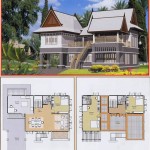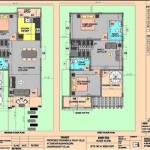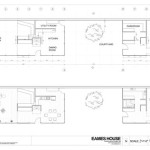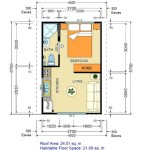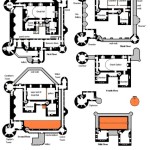Embracing Sustainable Living with Solar Powered House Plans
In today's environmentally conscious world, solar powered house plans have emerged as a sustainable and cost-effective way to build dream homes. Embracing solar energy offers numerous benefits, including reduced energy costs, enhanced energy independence, and a positive impact on the environment. When considering a solar powered home, homeowners should familiarize themselves with its essential aspects.
Factors Influencing Solar Energy Generation
To design an optimal solar powered house, it's crucial to understand the factors that impact solar energy generation. The size and angle of the roof play a vital role in determining the amount of sunlight it can capture. Additionally, the type and efficiency of solar panels, as well as the presence of shading, can significantly influence the overall energy output.
Components of a Solar Powered System
A typical solar powered house plan incorporates the following components:
- Solar Panels: These photovoltaic panels convert sunlight into electricity.
- Solar Inverter: This device converts the DC power from the solar panels into AC power, which is compatible with standard household appliances.
- Battery Storage (Optional): Batteries can store excess solar energy for use at night or during periods of low sunlight.
- Grid Connection: Most solar powered homes also connect to the electrical grid for backup power and to export excess energy.
Benefits of Solar Powered Houses
Harnessing the sun's energy through solar powered house plans offers several advantages:
- Reduced Energy Costs: Solar energy significantly reduces reliance on the electrical grid, leading to lower energy bills.
- Increased Energy Independence: Homeowners can generate their clean, renewable energy, reducing dependence on external power sources.
- Positive Environmental Impact: Using solar energy reduces greenhouse gas emissions and supports a cleaner environment.
- Enhanced Home Value: Solar powered homes are increasingly attractive to homebuyers, potentially increasing property value.
- Government Incentives: Many governments and utility companies offer financial incentives, such as tax credits and rebates, for adopting solar energy.
Considerations for Implementing Solar Power
When planning a solar powered house, several factors should be taken into account:
- Energy Needs: Determine the household's energy consumption to size the solar system accordingly.
- Roof Assessment: Ensure the roof has sufficient size, angle, and sun exposure for optimal solar energy generation.
- Cost and Financing: Research the upfront costs of installing a solar system and explore financing options.
- Permits and Zoning: Obtain necessary permits and comply with local zoning regulations.
- Maintenance and Monitoring: Solar systems require minimal maintenance, but regular monitoring can help ensure optimal performance.
Conclusion
Solar powered house plans offer a sustainable, cost-effective, and environmentally friendly approach to building homes. By understanding the factors influencing solar energy generation, the components of a solar powered system, and the benefits and considerations involved, homeowners can make informed decisions and embrace the future of renewable energy. Embracing solar power not only reduces energy costs but also contributes to a cleaner environment and enhances the overall value and appeal of the home.

11 Clever Solar House Designs From The U S Department Of Energy Decathlon 2024 Aurora

Solar Power 101

Solar Household System Rooftop Terrace Design Patio

11 Clever Solar House Designs From The U S Department Of Energy Decathlon 2024 Aurora

Top 15 Solar Powered Home Designs Plus Their Costs In 2024

Cabin Style House Plan 1 Beds Baths 704 Sq Ft 497 14 Houseplans Com

5 Beautiful Solar Powered Houses Around The World

Sun Plans Inspired Passive Solar House Homes

Passive Solar House Plan 2 Bedrms Baths 1418 Sq Ft 146 2710 Plans Homes

Solar Powered House Design

